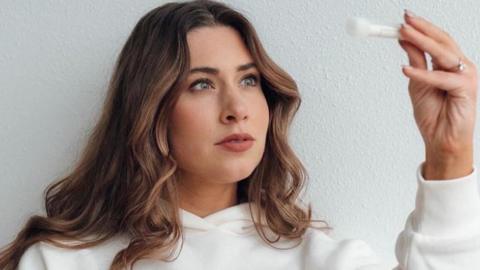Up to 70% of women with PCOS worldwide have not been diagnosed, according to the World Health Organization (WHO), and even when diagnosed, women struggle to find treatments that work.
“Whenever there’s a gap in medicine, predators take advantage,” said Dr Gunter.
The main false or misleading claims shared by these influencers include:
There is no evidence that highly restricted calorie diets have any positive effect, and the keto diet may make symptoms worse. Birth control pills do not cause PCOS and in fact help many women, though they don’t work for everyone. There is no known root cause for PCOS and there is no cure.
A spokesperson for TikTok said the company does not allow misleading or false content on the platform that may cause significant harm.
A spokesperson for Meta said user content on women’s health is allowed on the platform with “no restrictions”. The company said it consulted with third parties to debunk health misinformation.
